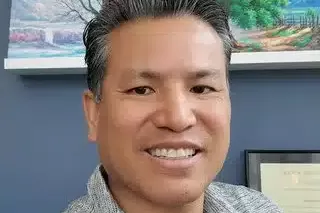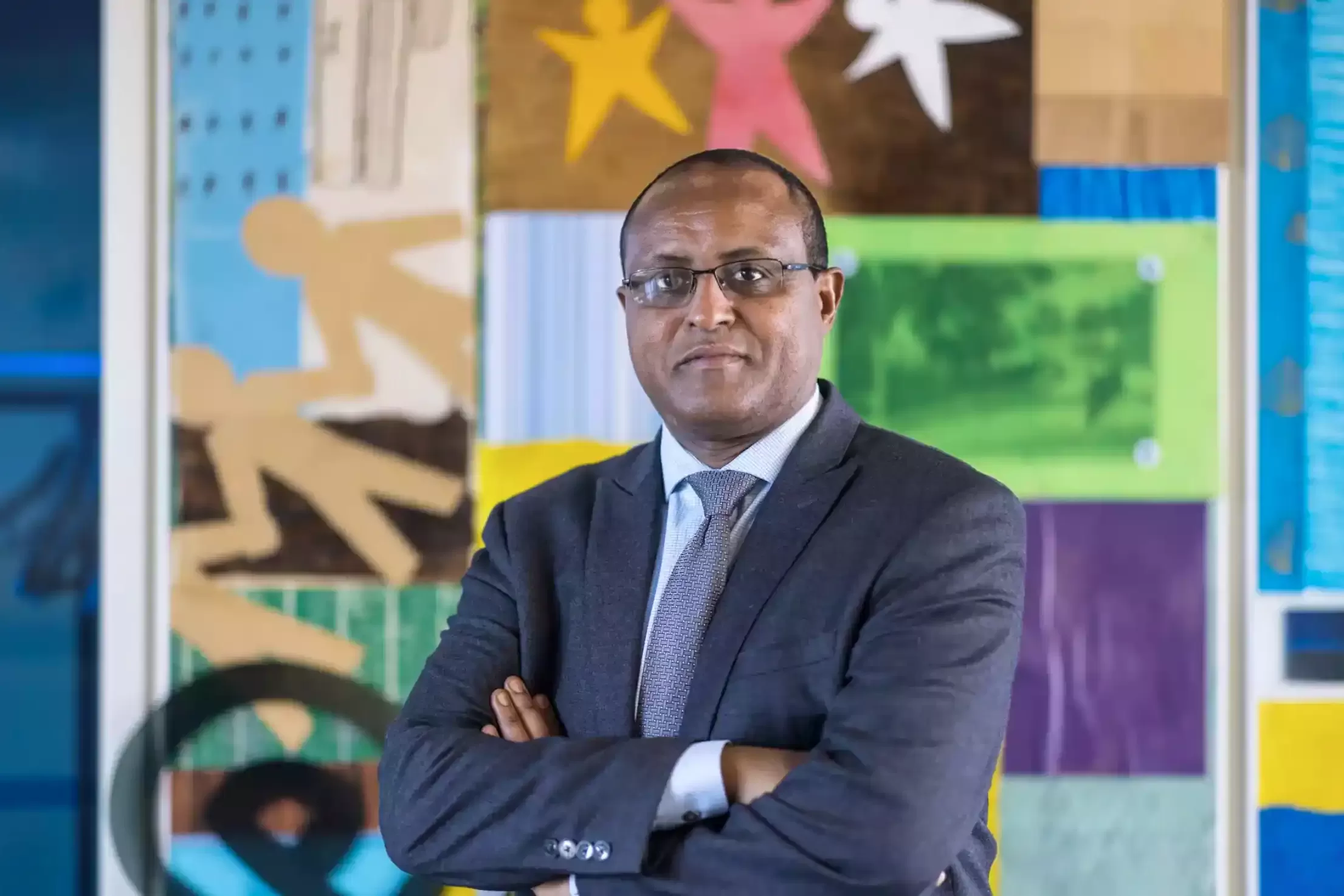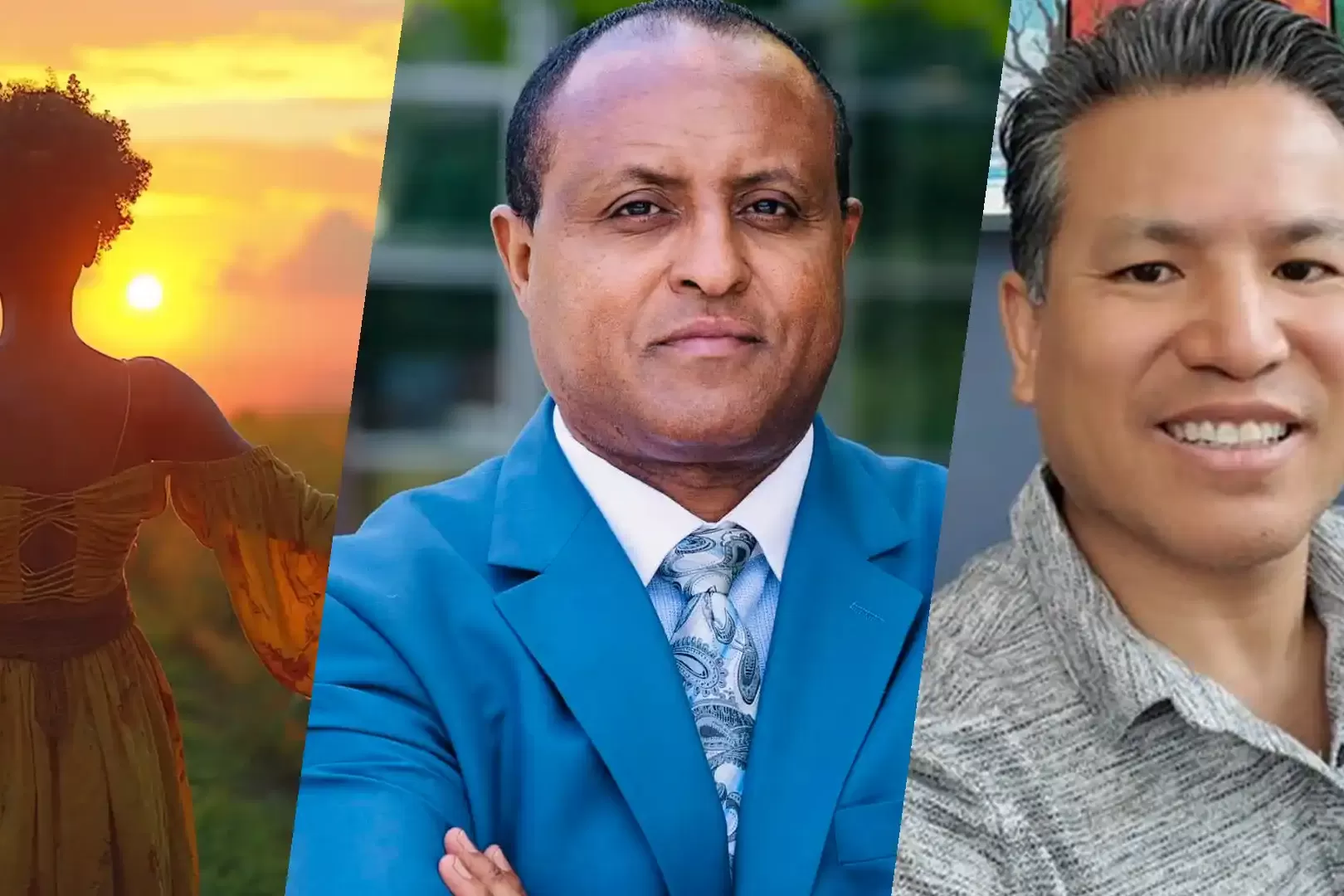Emeldah Mwansa is a 68-year-old mother of three adult children and four grandchildren from Zambia in Central Africa. She shared her story with us at Safeway, and we are proud to tell you about her outstanding journey as an African immigrant and mother to children who benefit from Adult Rehabilitative Mental Health Services (ARMHS).
Emeldah’s Life
For Emeldah, there were many factors that influenced her decision to emigrate to the United States in 1994, among them being a significant shift in the political climate in Zambia, which impacted its citizens’ access to things like jobs and food. “There was a shift in the political environment in our country,” Emeldah recalls, “but not so much to want us to move or run away from it. Most of it, I think was just looking for a brighter future.”
With a background in banking and finance, Emeldah was a high-functioning individual who would have been considered successful by most standards. However, even for her, “It was a big jump,”

Outside of politics, Emeldah made the move from Zambia because her husband was about to enter veterinary school in Champaign, Illinois. She came here when her youngest daughter was only 11 years old. Her middle child, a son, was about 16 years old. Shortly after coming to the US, Emeldah and her family moved to the Saint Louis area, finally settling in Cottage Grove, Minnesota.
Later, her husband started a veterinarian company with one of his professors. Being a farming area, Minnesota made sense for a veterinarian. He was working on developing vaccines and an attractive place for them to start the business.
It seemed, at least initially, that things were going well.
Adjustment… and Increased Stress
While Emeldah’s family didn’t include some of the more traumatic experiences encountered by many African immigrants, the practical challenges and stressors associated with their move to the US, the adjustment to a new culture, and establishing themselves were still difficult factors that immediately affected them.
Emeldah first noticed these factors taking a toll on her children.
“Issues started with my children when we moved here,” Emeldah said. “My youngest daughter joined the army when she graduated from high school.” Her daughter’s plan was to use the Army’s education benefits to pay for college and ultimately become a medical doctor. During her service, her daughter encountered some physical health issues, and that’s when the mental health problems started. At this point, Emeldah couldn’t be sure if the problem was connected to stress, physical health issues, medications, or a mental health condition that had arisen organically, and she was uncertain about needing mental health help.
“I think she was still in basic training when she started having these medical issues,” Emeldah says. “She couldn’t go back to school. She couldn’t even continue serving in the army, and she was honorably discharged.” In any case, “it really affected her goals in life,” according to Emeldah. Her daughter was unable to follow through with her plan to go to college and finally suffered a breakdown.
Stigma and Fear Run Deep
As is the case with many in the African immigrant community, unfamiliarity with the nature of mental health issues coupled with the cultural stigma associated with them in their homeland made identifying and addressing the problem even more of a challenge.
When mental health breakdowns like this happen, Emeldah says, “You are alone in the community. You don’t know other African families, and now you have this child who is very different. You know, definitely, that there’s something wrong with her thinking.[But] what do we do?”
According to the World Health Organization (WHO), most African countries allocate less than 1% of their annual budgets toward mental health care, leading to more than 80% of Africans struggling with mental health issues.
This stigma took a toll on Emeldah. ‘I brought with me this stigma—this unfair belief that someone needing mental health help is mad and that the community should abandon them. But how could I abandon her? She’s my daughter.
Sadly, in communities in Africa, and worse in immigrant communities in the US, very often a family member suffering from mental health issues means ostracism. “When you have a family member who is going through that,” Emeldah says, “you don’t even talk about it. It’s just a secret within the family.[At the time I thought], here I am [now in the US], all alone with a child who is pulling her hair out, and being put in a psych ward. What do you do? There are absolutely no resources, and they are telling you, ‘OK, she’s going to be on these medications. She will be OK,’ and stuff like that. And the child is not OK.”
Even though she had been in the US for some time, she eventually and desperately wanted to seek help for her daughter. She found that friends and family members—even her daughter’s half-brother—wouldn’t even discuss the matter with her. His answer was to withdraw and isolate, subsequently becoming clinically depressed and developing his own problem with alcohol abuse. In the meantime, her daughter’s condition escalated, resulting in four suicide attempts.
All of the above speaks not only to a critical need for sound mental health services for the African immigrant community in the Twin Cities area but also to a deeper understanding of what mental health issues mean to individual sufferers on a cultural level.
Breaking Down Barriers While Providing Support
So, what steps can those providing mental health services to the African immigrant community in the Twin Cities area take to ensure that individuals in need of mental health help receive the assistance they require?
According to the information that has been gleaned so far from immigrants like Emeldah, conscientious clinicians, and the research to date, there are three key components:
1. De-stigmatizing the issue of mental health.
Here, understanding the depth of the cultural influence in this community is critical. Demystifying the phenomenon of mental illness and promoting an understanding that it is, in fact, illness can go a long way to breaking down the stigmas associated with mental illness. Once we establish the realness of the illnesses, patients and their families need to be gently educated about how people suffering from mental health issues should be treated. It must become normalized. People with mental health issues should be treated with compassion and care, rather than stigmatized and ostracized.
2. Fostering communication
After breaking down the barriers associated with fear, patients, their families, and those within the African immigrant community at large need to be encouraged to speak about their problems, fears, and insecurities among themselves, as well as with mental health professionals.
3. Providing safe spaces for patients.
Finally, it is crucial for facilities and clinicians to understand not only mental health issues and their solutions but also to empathize with the challenges African immigrants face when seeking mental health help. Representation via clinicians and other professionals who are first- or second-generation African immigrants can also be very helpful in fostering a sense of safety among patients within this community.

How African Immigrants are Protected in Safeway Home Healthcare’s ARMHS Program
At Safeway Home Healthcare’s Adult Rehabilitative Mental Health Services (ARMHS), our services are uniquely tailored to address not only adult mental health issues but also the cultural challenges faced by recent arrivals.
We work tirelessly to alleviate the stigma and fears that often arise in those seeking help. We are committed to ensuring that those in the African immigrant community in the Twin Cities area feel heard, understood, and supported in their efforts to secure compassionate care in the area of mental health.
What Do We Offer?
We offer a holistic approach to mental well-being. Our comprehensive mental health services encompass a wide range of support.
- These include but are not limited to:
- Budgeting and financial management skills
- Developing a healthy lifestyle, including nutrition and exercise
- Anger management techniques
- Interpersonal and social skills
- Emotional regulation strategies
- Transportation assistance
- Decision-making support
- Behavior, emotion, and thinking management
- Coping mechanisms and self-care techniques
- Home management guidance
- Mindfulness and self-awareness practices
- Motivational skills
- Relationship management support
- Parenting skills development
- Employment planning and support
- Educational guidance
- Stress and worry reduction techniques
- Relapse prevention and harm reduction strategies
If you or a loved one would like to be connected with our dedicated team of professionals to learn more from our Safeway team.
You or a loved one can achieve greater independence and a fulfilling life in your Twin Cities community.
Learn more here.
Share
Subscribe To Our Newsletter
Safeway HHC Contributors
Our dedicated team of home health care professionals works closely with clients and their families to develop a personalized care plan that reflects their values and priorities. We strive to empower our clients to take an active role in their care and to make informed decisions about their health and well-being.
Related News
April 11, 2024
Trauma and Keo, a Licensed Clinical Counselor
Cultural stigma, misunderstanding, language barriers, financial constraints,…
April 2, 2024
Dr. Abe: A Mental Health Leader for a Community in Need
Whether new arrivals, permanent residents, or naturalized citizens, African…
March 17, 2024
3 Mental Health Voices in the Twin Cities Immigrant Community
For many years, the United States has been a destination for individuals…


